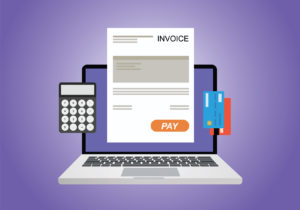
Digitalisation of invoices, an opportunity to be mastered
Before 2013, legislation only allows two ways for the digitalisation of invoices:
- Digitalised invoices as stated by the conditions fixed by the tax code (known as “EDI fiscal”)
- Electronically signed invoices.
With its Directive 2010/45/EU, the European Union wanted to encourage the use of electronic invoices.
Now, businesses can opt for an electronic invoicing system of their choice providing they guarantee the existence of a reliable audit trail.
Continuous monitoring at each stage of the invoicing process must be set up to guarantee a reliable link between the invoices received, the commercial transaction carried out and the payment made. What is often forgotten is that this audit trail is mandatory even with paper invoices.
Within the framework EU directives, sufficiently documented proof, be it paper based or electronic, must be kept by the company to demonstrate to the tax administration that the billing procedure is well managed. To ensure this, the following 3 rules should be applied.
- Authenticity of the invoice: the sender of the invoice is the same person who performed the service or delivered the goods
It is important to ascertain that the person who sent the invoice is the same as the one who performed the service or delivered the goods. Particular attention should also be paid when creating new chain of suppliers. Receiving an invoice from a new supplier should trigger a pre-validation process.
It is therefore important to create firm links between order/invoice/delivery for customers as well as suppliers, whilst keeping proof of these checks.
- Content integrity: an invoice submitted in electronic format must correspond exactly to the invoice that was edited by the supplier
- Clarity: the invoice must be presented in a format readable by all
It seems to be the best way of securing invoices; indeed no company receives 100% of its invoices by structured message (EDI – Electronic Data Interchange) or electronically signed document.
The digitalisation of invoices have a certain appeal for companies: time saving, secure, efficient… are the key words in invoice dematerialization. By implementing it, which in itself has significant advantages, companies will be able to better protect themselves against the risk of fraud by identity theft.

